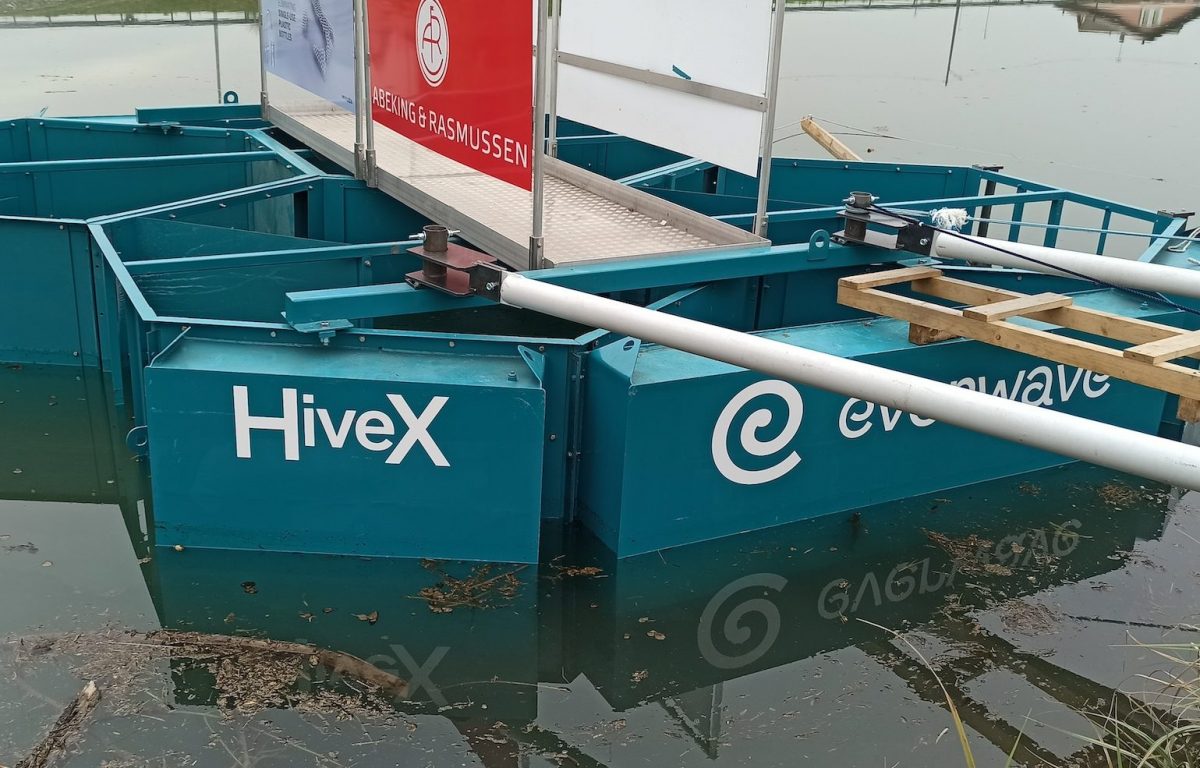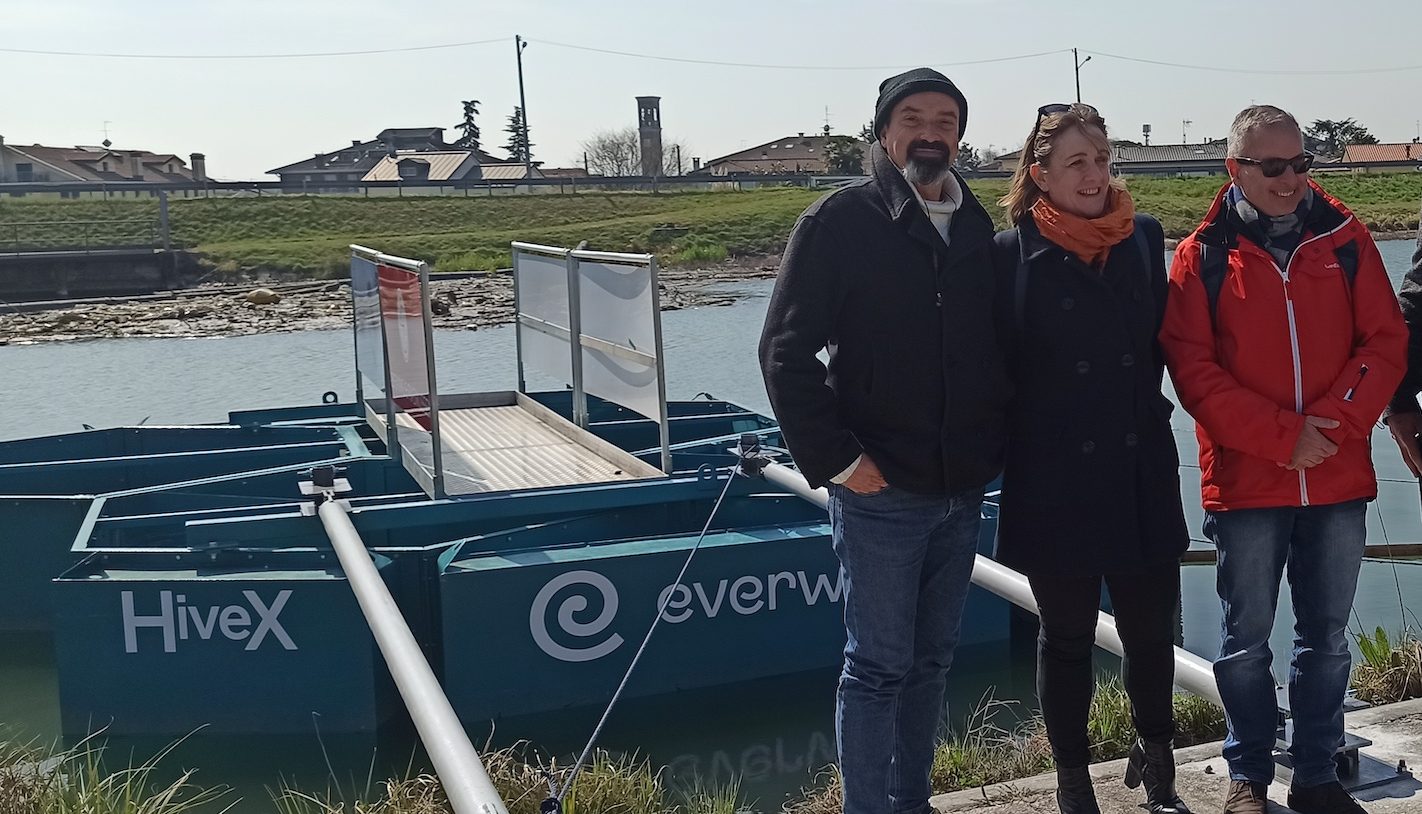Plastic pollution in Europe’s waters is an undeniably large issue. But did you know that much of the litter which ends up polluting our seas and oceans is transported by rivers? On average, around 12 million tonnes of plastic waste winds up in the ocean per year; the Mediterranean receives roughly 731 tonnes of this litter every day, with the highest density recorded in the Adriatic Sea.
German sustainability start-up Everwave, with the support of GROHE, have come up with a potential solution to this increasingly pressing issue. On Saturday 19 March on the Bacchiglione river, testing began for their HiveX prototype, following a long administrative process with the Genio Civile and the City of Padua, conducted by Venice Lagoon Plastic Free. We have undertaken the role of facilitator and focal organisation within this initiative against fluvial and marine plastic waste in Italy.
See the HiveX prototype in action in this video!

What does the HiveX prototype hope to achieve?
Placed at the hydroelectric centre of Voltabarozzo on the Bacchiglione river in Padua, this innovative prototype is the result of years of research and expertise from engineers in river-cleaning technology. The HiveX prototype’s primary aim is to gather and collect any litter present in the river before it can reach the sea, using the natural current of the water. The trial, which is taking place in Padua, will allow for a better understanding of the efficiency of this system, and how it could possibly be adapted to suit various river types.
How will testing work on plastic waste in the river?
During the initial phase, the plastic waste in Italy’s Bacchiglione river will be collected and registered by Legambiente, using a dedicated app made available by us at Venice Lagoon Plastic Free – this app complies with European protocols. Following this phase, the test data will be archived and shared with local councils and administrations.
Through this trial, we hope to gain a better understanding of potential ways to reduce the levels of plastic waste in Italy – both in the Veneto region and beyond – evaluating the efficiency of this experimental technology in order to make a knowledgeable final decision which supports the data collected. If you’d like to support our efforts in protecting and cleaning up Venice and the surrounding area, remember to make a donation!
